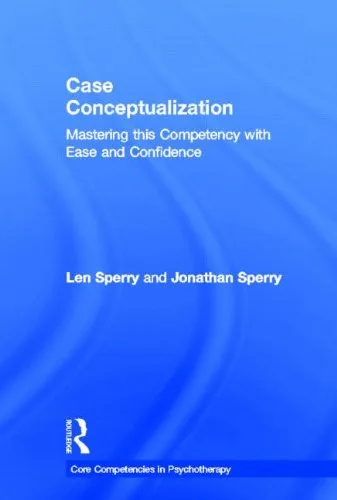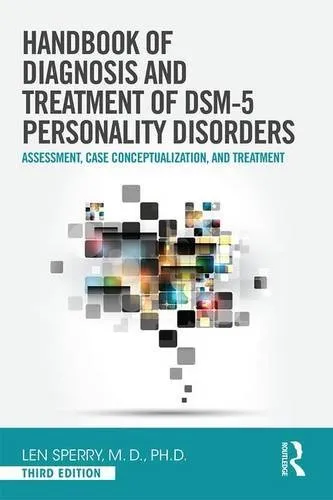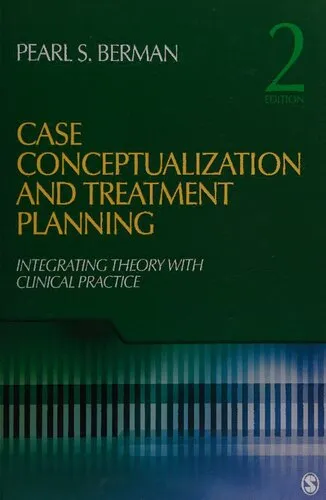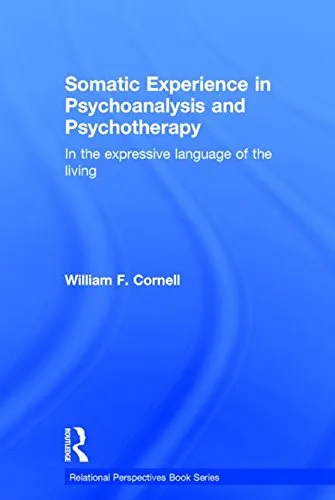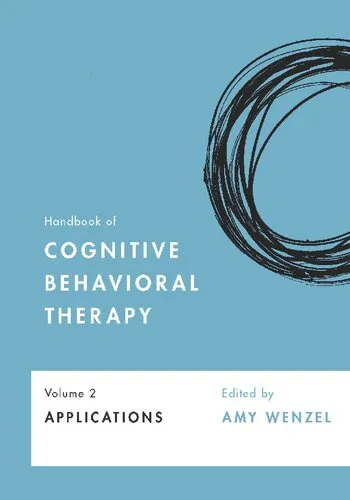Journal of Contemporary Psychotherapy
4.5
Reviews from our users

You Can Ask your questions from this book's AI after Login
Each download or ask from book AI costs 2 points. To earn more free points, please visit the Points Guide Page and complete some valuable actions.Related Refrences:
Analytical Summary
The *Journal of Contemporary Psychotherapypp.58—73* is a compelling segment of scholarly discourse that synthesizes contemporary research and reflective practice in psychotherapy. Authored collaboratively by Jean-Marie Boisvert, Madeleine Beaudry, and Joseph Bittar, it presents a nuanced exploration of clinical methodologies, theoretical frameworks, and case-based reflections relevant to both scholars and practitioners. Designed for the serious reader, this work bridges the gap between empirical evidence and the lived realities of therapeutic engagement.
Within these pages, the authors focus on advancing the dialogue around modern psychotherapy, integrating diverse perspectives from cognitive-behavioral models, experiential therapies, and integrative approaches. The analysis demonstrates how grounded theory can coexist with innovative techniques in clinical practice, ensuring both evidence-based rigor and sensitivity to client individuality.
Information unavailable regarding the precise publication year of this section; no reliable public source confirms the exact date. Nonetheless, the thematic relevance remains timeless, offering guidance in understanding the evolution of psychotherapeutic thought, particularly in contexts that demand cultural and situational adaptability.
Key Takeaways
Readers of the *Journal of Contemporary Psychotherapypp.58—73* will emerge with a broadened understanding of how contemporary therapeutic models can be applied cohesively in varied contexts. From theoretical synthesis to practical application, each takeaway empowers both emerging and seasoned professionals.
First, the importance of aligning interventions with well-documented research underlies the entire discourse. Second, the authors reaffirm the necessity of considering cultural nuances, ensuring psychotherapy remains inclusive. Third, practitioners are encouraged to continually update clinical practice in the light of new findings without abandoning foundational principles.
Fourth, interdisciplinary collaboration enriches therapeutic outcomes, as highlighted in case discussions. Finally, the text underscores the balance between scientific objectivity and empathic connection—a hallmark of successful therapy.
Memorable Quotes
While the text is rich in conceptual insights, certain passages stand out for their clarity and potential to inspire thoughtful practice.
“Effective psychotherapy is an evolving dialogue between empirical knowledge and human complexity.” Unknown
“Integrating diverse therapeutic approaches introduces flexibility without sacrificing rigor.” Unknown
“Empathy remains the cornerstone upon which all successful interventions are built.” Unknown
Why This Book Matters
The *Journal of Contemporary Psychotherapypp.58—73* holds significant value for academics, students, and clinicians aiming to deepen their grasp of modern psychotherapeutic practice.
As psychotherapy continues to adapt to societal changes, works like this provide a vital compass. By showcasing a diverse set of tools and perspectives, it helps practitioners stay relevant and effective. The inclusion of empirical data alongside qualitative case studies enables a holistic appreciation of what modern therapy entails.
Its multidisciplinary approach speaks to a global audience, resonating with professionals across cultures. For researchers, the text offers a succinct yet profound reference point for further inquiry into effective clinical interventions.
Inspiring Conclusion
In closing, the *Journal of Contemporary Psychotherapypp.58—73* serves as a testament to the ever-evolving nature of therapeutic science and art. By melding rigorous evidence with the lived wisdom of clinical practice, it inspires ongoing reflection and professional growth.
Readers are invited not merely to absorb its content, but to actively engage with colleagues, students, and peers and to question how these insights can reshape their own practice. Whether through discussion groups, scholarly critique, or application in the therapy room, the next step is clear: take the ideas presented here and let them inform and enrich your journey in psychotherapy.
By reading, sharing, and reflecting on the *Journal of Contemporary Psychotherapypp.58—73*, you contribute to a larger movement of thoughtful, evidence-driven, and compassionate mental health care. The invitation stands open—step into the dialogue.
Free Direct Download
You Can Download this book after Login
Accessing books through legal platforms and public libraries not only supports the rights of authors and publishers but also contributes to the sustainability of reading culture. Before downloading, please take a moment to consider these options.
Find this book on other platforms:
WorldCat helps you find books in libraries worldwide.
See ratings, reviews, and discussions on Goodreads.
Find and buy rare or used books on AbeBooks.
1044
بازدید4.5
امتیاز0
نظر98%
رضایتReviews:
4.5
Based on 0 users review
Questions & Answers
Ask questions about this book or help others by answering
No questions yet. Be the first to ask!


